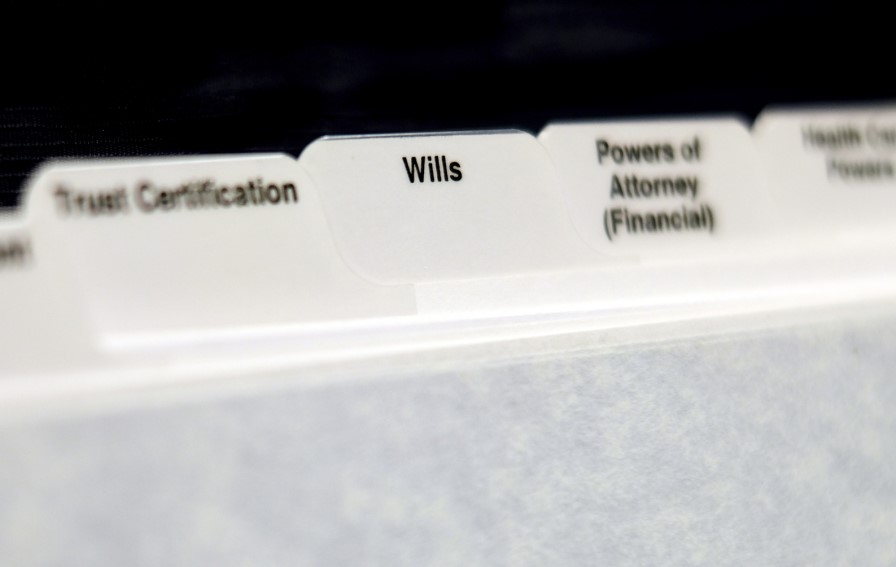
What percentage does a lawyer get for settling an estate? This is a question many people ask when they are faced with the daunting task of managing a deceased loved one’s assets. Estate settlement fees can vary widely depending on a number of factors, including the size and complexity of the estate, the location of the estate, and the lawyer’s experience and reputation. Understanding the different types of fees charged by lawyers, as well as the factors that influence those fees, is crucial for making informed decisions about your estate planning and settlement process.
In this article, we will delve into the intricacies of estate settlement fees, providing you with the knowledge and insight to navigate this complex legal landscape. We will discuss the different types of fees, including hourly rates, flat fees, and percentage-based fees, and examine the factors that can impact the cost of legal services. We will also explore alternative fee arrangements and provide tips for negotiating lawyer fees, empowering you to make informed decisions about your estate planning and settlement process.
Understanding Estate Settlement Fees
When a loved one passes away, it’s a difficult time, and the last thing you want to worry about is legal fees. However, estate settlement often involves legal professionals, and understanding their fees is essential for financial planning. Estate lawyers typically charge fees for their services, and these fees can vary significantly depending on the complexity of the estate and the services provided.
Types of Fees Charged by Estate Lawyers
Estate lawyers can charge different types of fees, and it’s crucial to understand these variations to make informed decisions. The most common types of fees include:
- Hourly Rates: This is the most traditional way for lawyers to bill their clients. An hourly rate is a set amount charged for each hour of work performed by the lawyer. This fee structure is common for complex estates that require extensive legal work, such as those involving multiple beneficiaries, complex assets, or contested wills.
- Flat Fees: This fee structure involves a fixed amount charged for specific services, such as preparing a simple will or handling a straightforward probate case. Flat fees can be beneficial for clients who prefer predictable costs and want to avoid potential surprises associated with hourly rates.
- Percentage-Based Fees: This type of fee is calculated as a percentage of the total estate value. Percentage-based fees are often used for larger estates and can be a convenient option for both the lawyer and the client. However, it’s important to note that these fees can be substantial, especially for large estates.
Factors Influencing Percentage Fees
Several factors can influence the percentage fee an estate lawyer charges. These factors include:
- The Size of the Estate: Generally, lawyers charge a lower percentage for smaller estates and a higher percentage for larger estates. This is because the amount of work involved in settling a larger estate is typically more extensive, and the lawyer’s time and expertise are more valuable. For example, a lawyer might charge 5% for an estate valued at $1 million but only 2% for an estate valued at $100,000.
- The Complexity of the Estate: Estates with complex assets, multiple beneficiaries, or potential disputes can require more legal work, leading to higher percentage fees. For instance, an estate involving real estate, businesses, or trusts might attract a higher percentage fee than an estate consisting primarily of personal property.
- The Lawyer’s Experience and Reputation: Experienced and well-regarded estate lawyers often charge higher percentage fees due to their expertise and track record of success. Their reputation and experience can be valuable assets in complex estate settlements, justifying a higher fee.
- The Location of the Estate: Geographic location can influence legal fees. Estate lawyers in high-cost areas like major cities might charge higher percentage fees than those in less expensive regions. The cost of living and the market value of legal services in a specific area can affect fee structures.
- The Nature of the Estate Settlement: The type of estate settlement, such as probate or a trust, can impact the percentage fee. Probate cases typically involve more legal work and court appearances, potentially leading to higher fees compared to trust settlements.
Percentage-Based Fees in Estate Settlement

Percentage-based fees are a common method of charging for estate settlement services. This approach calculates the attorney’s compensation as a percentage of the total value of the estate. This method offers transparency and a clear understanding of the lawyer’s compensation based on the estate’s value.
Percentage-Based Fee Calculation
The percentage-based fee is typically calculated as a percentage of the gross estate value, which includes all assets before any deductions. This percentage can vary depending on several factors, such as the complexity of the estate, the location, and the experience of the attorney.
Common Percentage Ranges for Estate Settlement Fees
The percentage-based fee structure offers a clear and transparent approach to calculating attorney compensation in estate settlement. However, it’s crucial to understand the factors that influence the fee range and to seek clarity on the specific details of the fee agreement with your attorney.
- Simple estates with minimal assets and straightforward beneficiaries may have lower fees, typically ranging from 1% to 3% of the estate’s value.
- More complex estates with significant assets, multiple beneficiaries, or challenging legal issues may involve higher fees, ranging from 3% to 5% or even higher.
- Contested estates, where there are disputes among beneficiaries or legal challenges to the will, may result in even higher fees, sometimes exceeding 5% of the estate value.
Benefits and Drawbacks of Percentage-Based Fees
The percentage-based fee structure presents both benefits and drawbacks for clients.
Benefits
- Transparency: The percentage-based fee structure provides clarity regarding the attorney’s compensation, which is directly tied to the estate’s value. This transparency fosters trust and eliminates uncertainty about the fee structure.
- Alignment of Interests: The percentage-based fee structure aligns the attorney’s interests with those of the client, as the attorney’s compensation is directly linked to the estate’s value. This alignment encourages the attorney to work diligently to maximize the estate’s value for the benefit of the beneficiaries.
Drawbacks
- Potential for High Fees: In cases of large estates, the percentage-based fee structure can result in substantial attorney fees, even if the estate’s complexity is relatively low. This can significantly impact the inheritance received by beneficiaries.
- Lack of Flexibility: The percentage-based fee structure may lack flexibility in situations where the estate’s complexity changes unexpectedly. For instance, if unforeseen legal challenges arise, the fee may remain fixed based on the initial estate value, potentially leading to a higher fee than initially anticipated.
Factors Influencing Lawyer Fees
While the percentage-based fee structure is common in estate settlement, several factors can influence the final amount a lawyer charges. These factors can significantly impact the overall cost of settling an estate and should be carefully considered when choosing legal representation.
Estate Size and Complexity
The size and complexity of the estate are key determinants of lawyer fees. Larger estates with more assets and beneficiaries generally require more extensive legal work, leading to higher fees. Similarly, estates with complex issues like contested wills, multiple beneficiaries with differing interests, or international assets demand more time and expertise, translating into higher fees.
Location of the Estate
The location of the estate can also influence lawyer fees. Legal fees can vary significantly across different states and jurisdictions. For example, estates located in metropolitan areas with higher costs of living may attract higher lawyer fees compared to estates in rural areas.
Other Factors Affecting Lawyer Fees, What percentage does a lawyer get for settling an estate
Apart from estate size, complexity, and location, several other factors can impact the percentage a lawyer charges. These include:
- Lawyer’s Experience and Reputation: Lawyers with extensive experience and a strong reputation in estate planning and probate law may command higher fees. Their expertise and track record often justify higher fees due to their ability to navigate complex legal issues and achieve favorable outcomes for their clients.
- Complexity of Legal Issues: The complexity of legal issues involved in the estate settlement can influence lawyer fees. For example, estates with contested wills, tax implications, or international assets require more specialized legal knowledge and may result in higher fees.
- Amount of Time and Effort Required: The amount of time and effort a lawyer invests in an estate settlement directly impacts the fees. Cases requiring extensive research, document review, court appearances, and negotiations can lead to higher fees.
- Client’s Financial Situation: Some lawyers may adjust their fees based on the client’s financial situation. This can be especially relevant for individuals with limited financial resources who may need assistance navigating the legal complexities of estate settlement.
Negotiating Lawyer Fees: What Percentage Does A Lawyer Get For Settling An Estate

Negotiating lawyer fees for estate settlement can be a complex process, but it’s essential to ensure you’re getting a fair deal. By understanding the factors that influence lawyer fees and employing effective negotiation strategies, you can secure a cost-effective solution that aligns with your needs and budget.
Obtaining Multiple Quotes
Seeking quotes from multiple lawyers is crucial for comparing fee structures and identifying the most competitive options. This process allows you to evaluate different approaches to estate settlement, understand the scope of services offered, and determine the best fit for your specific circumstances.
- Contact several lawyers specializing in estate planning and probate law in your area.
- Provide each lawyer with a detailed overview of the estate, including its size, complexity, and any potential challenges.
- Request a clear and detailed fee proposal outlining the services included, the hourly rate, and any fixed fees.
- Compare the quotes carefully, paying attention to the specific services offered, the total estimated cost, and the lawyer’s experience and reputation.
Transparency and Understandability
Ensuring that the lawyer’s fee structure is transparent and understandable is critical to avoid surprises and potential disputes. It’s essential to have a clear understanding of the basis for the fees, the payment schedule, and any additional costs that may arise.
- Ask for a written fee agreement that Artikels the scope of services, the payment terms, and any contingencies.
- Request clarification on any unfamiliar terms or fees, ensuring you fully comprehend the fee structure.
- Discuss the possibility of a fixed fee for specific tasks or a sliding scale based on the estate’s value.
- Negotiate a payment schedule that aligns with your financial capabilities and the progress of the estate settlement process.
Alternative Fee Arrangements

While percentage-based fees are common in estate settlement, alternative fee arrangements can provide more flexibility and predictability for clients. These arrangements allow for a more tailored approach to legal fees, considering the specific needs and complexity of each estate.
Flat Fees
Flat fees are a fixed amount charged for specific services, such as preparing a will, administering a simple estate, or handling probate proceedings. This arrangement offers clarity and predictability for clients, as they know exactly how much they will pay upfront.
- Advantages: Flat fees provide upfront cost certainty, eliminating the uncertainty of hourly billing. This transparency makes budgeting easier for clients, especially when dealing with a complex estate.
- Disadvantages: Flat fees may not be suitable for complex estates with numerous beneficiaries or complicated legal issues. In such cases, the fixed fee might not adequately cover the lawyer’s time and effort, potentially leading to a financial loss for the attorney. Additionally, flat fees might not be flexible enough to accommodate unexpected changes or additional work during the estate settlement process.
Hourly Rates
Hourly rates are a common billing method where clients are charged for the lawyer’s time spent on their case. This arrangement offers flexibility as the lawyer can adjust their work hours based on the complexity of the estate and the client’s specific needs.
- Advantages: Hourly rates provide flexibility, allowing lawyers to adapt their time and effort to the specific requirements of each estate. This approach ensures that clients pay only for the services they receive, offering a fair and transparent billing method.
- Disadvantages: Hourly rates can be unpredictable for clients, as the final cost of legal services can vary depending on the time spent on the case. This uncertainty can make budgeting difficult, especially for clients who are unfamiliar with the intricacies of estate law. Additionally, hourly rates can incentivize lawyers to prolong the settlement process, leading to higher overall costs for the client.
Hybrid Fee Arrangements
Hybrid fee arrangements combine elements of flat fees and hourly rates, offering a balance between cost certainty and flexibility. This approach can be tailored to the specific needs of each estate, providing a more personalized solution for clients.
- Advantages: Hybrid fee arrangements offer a combination of the benefits of both flat fees and hourly rates, providing a balance between cost certainty and flexibility. This approach allows lawyers to charge a flat fee for specific tasks, while billing hourly for more complex or unpredictable aspects of the estate settlement.
- Disadvantages: Hybrid fee arrangements can be more complex to understand and negotiate than traditional flat fees or hourly rates. Clients need to carefully review the terms of the agreement to ensure they fully understand the billing structure and potential costs involved.
Choosing the Right Fee Arrangement
The best fee arrangement depends on the specific circumstances of the estate and the client’s preferences.
Factors to consider include:
- The complexity of the estate
- The client’s budget and financial situation
- The client’s risk tolerance
- The lawyer’s experience and expertise
Final Wrap-Up
Navigating the world of estate settlement fees can feel overwhelming, but understanding the basics and knowing what questions to ask can help you make informed decisions. By working with a qualified and experienced attorney, you can ensure that your loved one’s wishes are honored and their assets are distributed according to their plan. Remember to ask for a clear breakdown of fees, explore alternative fee arrangements, and don’t hesitate to negotiate to find a solution that works best for you.
FAQ Explained
How do I find a qualified estate lawyer?
You can start by asking for referrals from friends, family, or financial advisors. You can also search online for estate lawyers in your area and check their credentials and experience.
What documents do I need to provide my lawyer?
The specific documents required will vary depending on the circumstances of the estate, but generally include the deceased’s will, death certificate, and any relevant financial documents, such as bank statements, investment accounts, and property deeds.
What are the common mistakes people make when settling an estate?
Some common mistakes include failing to properly inventory the assets, not following the instructions of the will, and not filing the necessary tax returns.
What are the potential tax implications of estate settlement?
There are various tax implications associated with estate settlement, including estate tax, inheritance tax, and capital gains tax. It’s important to consult with a tax professional to understand the specific tax implications of your situation.





